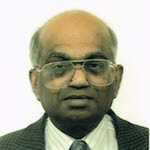A Brief Colonial History Of Ceylon(SriLanka)
Sri Lanka: One Island Two Nations
A Brief Colonial History Of Ceylon(SriLanka)
Sri Lanka: One Island Two Nations
(Full Story)
Search This Blog
Back to 500BC.
==========================
Thiranjala Weerasinghe sj.- One Island Two Nations
?????????????????????????????????????????????????Friday, September 30, 2016
The Appalling Decline In National Unity, Good Governance & Sustainable Development Process In ‘Democratic Socialist’ Sri Lanka

By S. Narapalasingam –September 29, 2016
The national elections held last year focussed mainly on the
deteriorated governing system and did not raise subjective matters
aggravating the protracted ethnic issue, which has caused enormous
losses to the people and the nation since independence. Unfortunately,
some opposed to the National Unity government seem keen on treading
along the old nationally divisive path, fuelling the ethnic issue for
their own political benefit. They also seem to be keen on ousting the
National Unity government committed to national unity and good
governance for regaining the lost power. The nationally damaging ways to
gain power seem to exist with the power hungry politicians, despite the
costly damage done in the past.
The underlying fact is, the ‘divide and rule’ scheme which became a
handy way to gain the votes of the Sinhala masses crucial for winning
countrywide elections laid the grounds for the colossal damage done to
all communities since independence. A different system that safeguards
the unity and the fundamental rights of all communities and citizens is
essential, if the post-war country is to progress steadfastly for the
benefit of all citizens in the 9 provinces.
Past nationally damaging developments even after the protracted internal
war ended in 2009 influenced the formation of the present National
Unity Government with the two main political parties (UNP and SLFP) as
equal partners committed to national unity, real democracy, rule of law,
good governance and sustainable development of the entire nation. These
noble and overdue aims are discernible from the pronouncements of the
current leaders of the two main political parties, which for the first
time have joined as equal partners in the noble task of building a
promising united Sri Lanka, the shared homeland of the diverse ethnic
communities living in different parts of the island since ancient time.
 Both
the Sinhalese and Tamils have their ancestral roots in India and the
Sinhala language not used elsewhere is also a derivative of combined
ancient Indian languages. It is irrelevant, who settled first in the
island for a political system to function democratically without any
racial discrimination safeguarding national unity and promoting social
and economic development in the entire country. If Sri Lanka is really a
Buddhist country, Buddhist philosophy should also influence the
governing ways. Unfortunately, what happened in the past, despite giving
prominence to Buddhism in the island’s constitution is totally
different.
Both
the Sinhalese and Tamils have their ancestral roots in India and the
Sinhala language not used elsewhere is also a derivative of combined
ancient Indian languages. It is irrelevant, who settled first in the
island for a political system to function democratically without any
racial discrimination safeguarding national unity and promoting social
and economic development in the entire country. If Sri Lanka is really a
Buddhist country, Buddhist philosophy should also influence the
governing ways. Unfortunately, what happened in the past, despite giving
prominence to Buddhism in the island’s constitution is totally
different.

